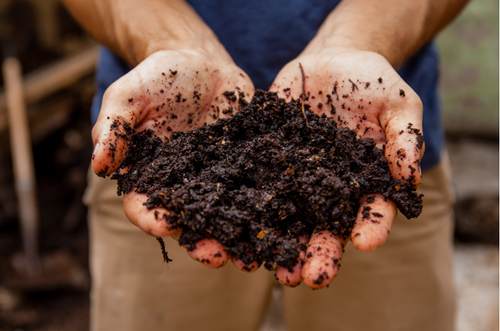
Creating a More Environmentally Sustainable Food System
Local food production encourages sustainable land-based practices that conserve our urban landscape, support biodiversity and return critical nutrients from food scraps back into our soil.

School Gardens Grow Atlanta’s Next Generation of Environmental Stewards.
Nearly 40 percent of all household trash is compostable – meaning those tea bags, coffee grounds, egg shells, and fruit and vegetable peels you were about to toss into the garbage can be turned into healthy soil for farms and gardens.
Atlanta-based company Compostwheels is on a mission to educate Atlanta residents about the importance of composting.


Since 2012, the company has diverted more than two million pounds of food waste from landfills through its composting service, and it has established relationships with more than seven farms and gardens in Atlanta.
What makes Compostwheels unique is the company’s focus on local food production, according to Compostwheels founder David Paull. Through the company’s compost-pick up service, residential customers in the Atlanta area pay a monthly fee to have their food scraps and organic material collected by bike or truck straight from their doorsteps.

The small, family-run business then turns the compost into nutrient-rich soil that is delivered to local farms and gardens, or back to customers. Compostwheels also offers its service to commercial customers including Atlanta-area offices, coffee shops, grocery stores, schools, institutions and restaurants.
In 2016, through Compostwheels customers diverted 1,190,000 pounds of food waste from Atlanta landfills – nearly triple the prior year’s 432,000 pounds.
To date, the compost company’s biggest success is the relationship it has established with local farmers, according to Paull.
“When talking with our farm partners, we are finding that the condition of their soil has drastically improved from working with us. Just yesterday, I was with a farmer who said their onions have never been this healthy and this large, and root systems are mind-bogglingly healthy. And to hear things like that is just tremendous. It means we're being effective in what we set out to do,” says Paull.



Food Well Alliance wants to hear from urban farmers, local food entrepreneurs and distributors about challenges and opportunities to scale and increase access to locally grown food.
Here is what we have heard from the community so far:
What are your ideas for removing these barriers?
• Haulers that recover thousands of pounds of food waste from commercial sites, such as universities, do not have the partners or processes to deliver that feedstock directly to farms and gardens to turn into compost.
• Small-scale compost producers are unable to meet the demand for high-quality, locally produced compost for Atlanta growers.
• Many people believe all insects are “bad” and take steps to eliminate them when only about 3% of insects are problematic.
• Metro Atlanta’s pollinator habitat is being harmed by broad-based insecticide use and increased construction, which can damage the population of insects that are beneficial to food crops.
• Land that is available for growing is often poor quality, with soil and water contamination.
Imagine if we worked together to make this happen in Metro Atlanta:
• A more favorable regulatory climate that mitigates barriers to scaling and increasing capacity of community-based compost production in Metro Atlanta.
• Garden-based education that increases understanding among Atlanta growers to help restore pollinator habitat.
• City of Atlanta’s Office of Sustainability that reevaluates their use of pesticides in city landscaping and encourages the planting of pollinator forage in unusual places, such as around transmission right-of-ways.
• Urban planners and developers are incentivized to preserve green spaces for sustainable food production.